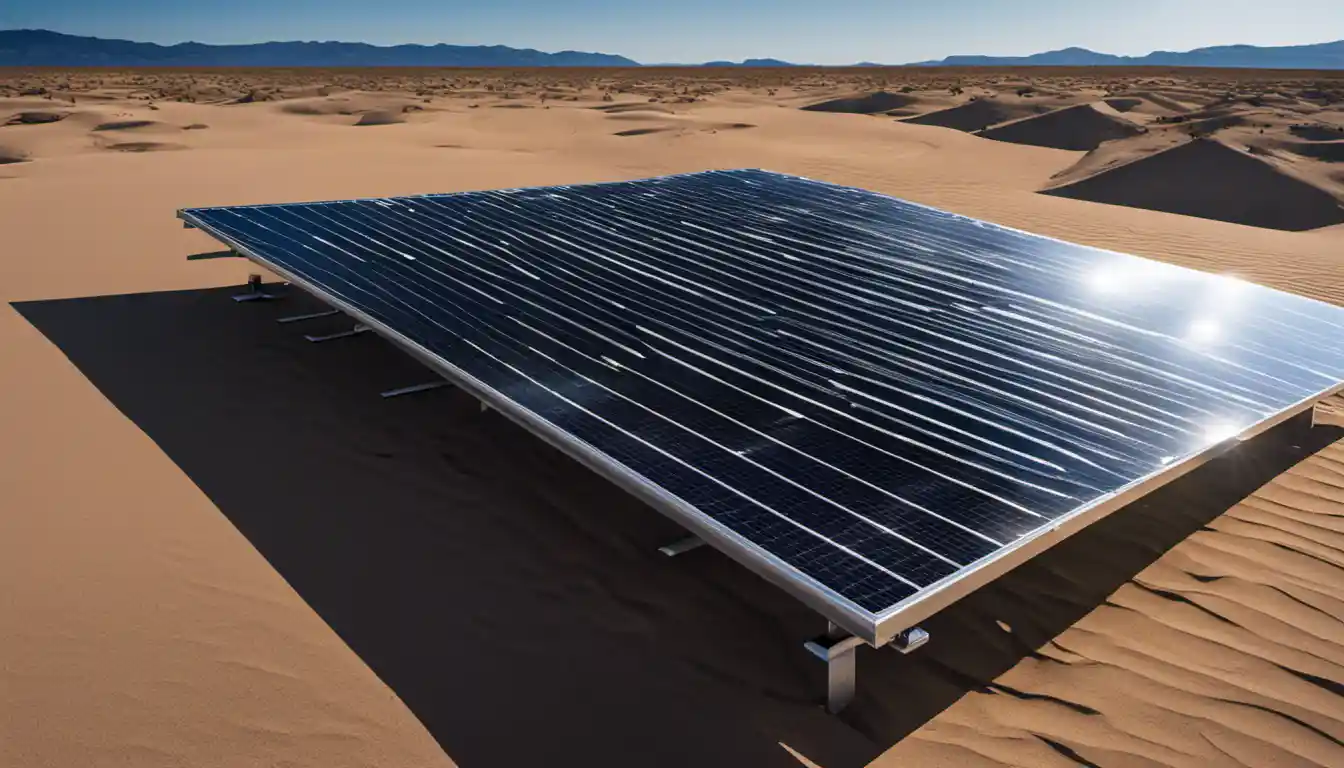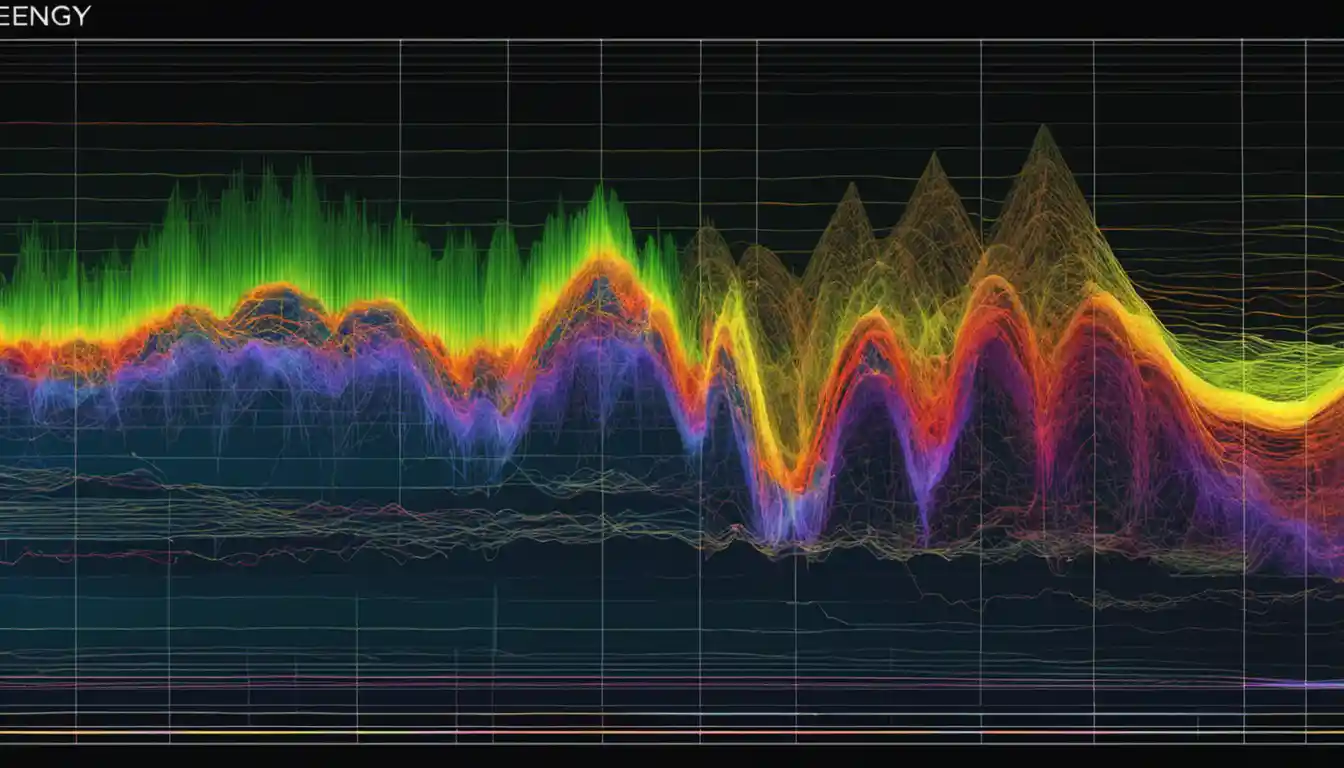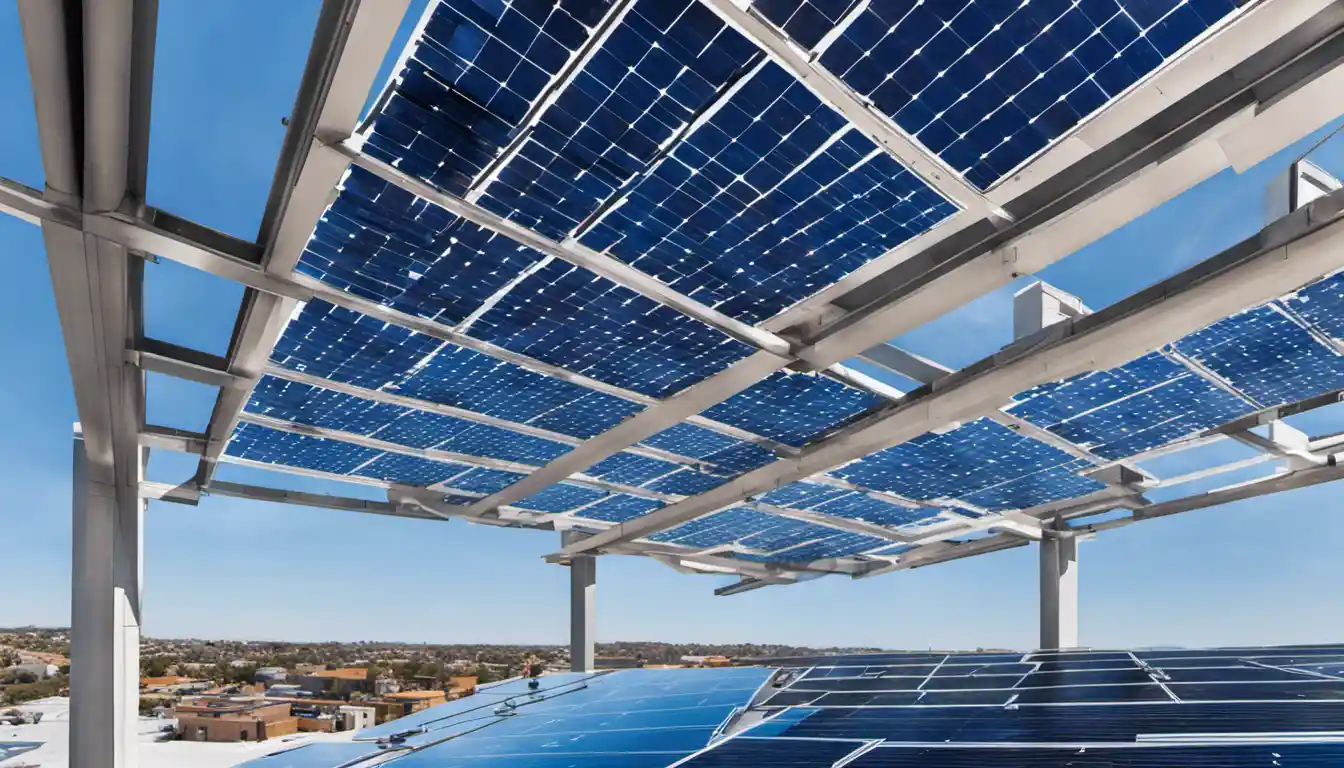Overview of Commercial Solar Panel Sizes
Commercial solar panels typically measure approximately 77 inches by 39 inches, but the size can vary depending on the specific model and manufacturer. They are typically larger than residential solar panels, which allows them to generate more electricity. However, size may vary depending on the power output and efficiency of the solar panel.
Understanding Commercial Solar Panels
How Big Are Commercial Solar Panels?
When it comes to commercial solar panel sizes, you will find that the average dimension is about 77 inches by 39 inches. But more than just physical dimensions, the efficiency, material, and power output affect the “size” as well. Commercial solar panels indeed represent a diverse field with options suited to different commercial needs.
Weight of Commercial Solar Panels
Typically, the weight of each commercial solar panel ranges from about 40 to 50 pounds. Keep in mind that the weight can also vary based on the materials used in manufacturing and the size of the panel.
Differences Between Commercial and Residential Solar Panels
Commercial solar panels are typically larger than residential ones, considering businesses generally need more power than residences. They are designed to be used on a larger scale, and hence, they are made more durable to withstand different climatic conditions.
Commercial Solar Panel Sizes and Wattage

Relation Between Size and Wattage
With increased size, a solar panel can house more solar cells, capturing more sunlight, and hence, produces more electricity. If you’re trying to understand commercial solar panel sizes and wattage, remember, this correlation is key. The wattage of a commercial solar panel describes its power output — how much power it can produce under standard testing conditions.
Output for Different Sizes and Wattages
The output capacity of a solar panel depends not only on its size but on the amount and intensity of sunlight it receives. On average, a typical commercial solar panel can output around 325 to 350 watts. However, this can increase to 400-450 watts for high-efficiency commercial panels. For in-depth information on that, you can check out our page on solar panel sizes and wattage.
How to Choose the Right Size of Solar Panels for Your Business
Factors to Take Into Account Before Sizing
Before deciding on the appropriate commercial solar panel sizes for your company, ensure you fully understand your energy requirements. Do you need to replace all your electricity consumption with solar? Or is your priority reducing reliance on the grid? Each commercial project has different needs and hence requires a different approach.
Considering Your Energy Usage Patterns
Analyzing Your Yearly Energy Usage

Consider your yearly energy use. It’s important to know not only how much electricity you consume, but also when and how often. Your utility bill often provides this information.
Monthly and Daily Energy Usage
How you use energy throughout the day and during different months will also impact what commercial solar panel sizes are right for your business. For example, if you are a manufacturing company running heavy equipment during the day, you might need more panels compared to an IT firm with mainly night operations.
Importance of Peak Sunshine Hours in Deciding Panel Size
Knowing your area’s peak sunshine hours helps determine your solar power needs. Commercial solar panels will generate more power during these peak hours. If your region gets a lot of sun, your panels will generate power more efficiently.
Final Steps in Sizing a Solar System for Your Business
Calculating Your Commercial Solar System Size
The calculation involves determining your daily energy consumption, considering the peak sunlight hours in your location, and understanding the efficiency and power rating of the solar panels.
Making Final Adjustments
When calculating your solar system size, don’t forget to account for potential growth or changes in business operations. You might also need to add extra solar capacity if you plan to install energy storage in the future.
Additional Benefits of Going Solar

Getting Rid of Your Electric Bill
Commercial solar can effectively minimize or even get rid of your electricity bill. Think of it as an upfront investment for long-term cost savings.
Tax Breaks for Solar Energy Users
Commercial solar panel users often qualify for significant tax benefits, adding to the attractive financial case for solar.
Harnessing the Power of Renewable Energy
Benefits of a Commercial Solar System
Solar is a clean and renewable source of energy. By switching to solar, your business can reduce its carbon footprint. Plus, stabilizing your power costs by generating your energy can give you a competitive edge.
Importance of Selecting the Right Size
Getting the correct commercial solar panel size isn’t just about ensuring you generate enough power. It’s also a balance between maximizing your investment, optimal payback time, and considering other factors like roof size.
All in all, the key to a successful solar journey is understanding your power needs and aligning them with the right commercial solar panel sizes. It might seem like a daunting task, but remember, an optimized commercial solar set-up will reap significant benefits in the long run.



